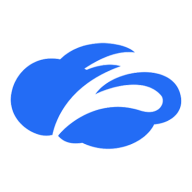


GitGuardian Platform and Zscaler Zero Trust Exchange Platform compete in the security software market. GitGuardian appears stronger at detecting secrets in code, whereas Zscaler offers a wider array of security features for comprehensive protection.
Features: GitGuardian focuses on detecting sensitive information in repositories, delivering alerts and supporting integrations to maintain code hygiene. It reduces false positives while prioritizing security fixes. Zscaler emphasizes data protection through zero-trust methodologies, secure remote access, and cloud security integration. It seamlessly integrates into existing infrastructures to provide a broad security solution.
Room for Improvement: GitGuardian users desire better customization for identifiers like PII and improved logs integration. Enhanced historical scan efficiency and user management are also sought. Zscaler needs cost optimization, improved scalability, and better integration with legacy systems. Users indicate a need for greater control over security features and highlight the high costs for added functionalities such as gateways.
Ease of Deployment and Customer Service: GitGuardian is noted for its straightforward deployment and responsive customer service, aiding in quick integration. Zscaler, while effective in similar environments, may incur higher costs for specific setups. GitGuardian's customer support is commended for problem-solving efficiency, while Zscaler's user management and integration processes could be improved for a smoother deployment experience.
Pricing and ROI: GitGuardian offers reasonable pricing with flexible models, particularly valuable with its proactive detection capabilities. Despite higher costs for larger teams, the value in preventing security breaches is acknowledged. Zscaler's pricing is higher due to scalability and additional licenses needed for full features. Its comprehensive security can lead to cost savings on legacy systems, presenting a strong ROI for committed users.
WordPress security can be tricky, and that's where Cloudflare can be absolutely helpful for small businesses.
We have had ROI with the tool's use since it never gave us downtime and made us lose millions.
For the small project I was working on, using the basic tier provided a huge improvement at zero cost.
This would help us address issues promptly, especially during unforeseen events like DDoS attacks.
We'd like a dedicated account manager.
You can get a support engineer with the best qualifications.
Sometimes, support takes time since the solution has some bugs that need fixing.
I would rate the solution's scalability a ten out of ten since I didn't encounter any issues with it.
I rate its scalability a ten out of ten because I had no issues with it.
I rate the scalability a ten out of ten.
For DDoS protection, I would not recommend Cloudflare.
I rate the solution’s stability an eight out of ten.
The service is very stable with no impacts during high-traffic periods.
There's a need for improvement in areas like AI-based DDoS attacks and Layer 7 WAF features.
Despite these challenges, overall, Cloudflare remains the preferred solution compared to Azure, AWS CloudFront, and Google Cloud Armor.
the ability to integrate with the on-site active directory instead of just AD through Azure AD
They might be able to identify if something is missing with Zscaler.
That's where Cloudflare shines for smaller businesses – it's ten times cheaper than Akamai.
I find it to be cheap.
It's cost-effective, but I think they should have a custom pricing model for enterprise customers based on the features you use.
Our scenario consisted of two web servers in different allocations to control access demands, and the load balancer did the job as expected, bringing security and stability to access points.
For me, the valuable feature is DDoS protection.
The most valuable features of the solution are performance and security.
The solution is cloud-based with the latest inspection engines, which I find to be amazing.



Cloudflare is a highly-regarded Content Delivery Network (CDN) and a Distributed Denial-of-Service (DDoS) protection solution. The robust global connectivity cloud platform that is Cloudflare ensures users are able to connect to the Internet quickly, securely, and reliably. Cloudflare is one of the world's largest networks in the marketplace today. Using Cloudflare, businesses, educational entities, NGOs, vloggers, bloggers, and anyone else with an internet presence can experience more secure, faster websites and applications.
Currently, there are millions of Internet locations on Cloudflare, and the Cloudflare network
continues to grow every day by the thousands. The solution is able to fulfill the requests for
millions of websites seamlessly and serves on average 45 million HTTP requests per second.
Cloudflare has safe, secure data centers in close to 300 cities worldwide to ensure every
client request is filled as quickly as possible. It is Cloudflare’s edge network that makes this
possible by keeping content and other services as close to each client as possible, so the
information requests are always only seconds away.
Many organizations that work in democracy, civil society, human rights, or the arts are able to
access Cloudflare's highest levels of protection for free via Project Galileo. Additionally, official
election websites can be secured from hacking and fraud through Cloudflare’s Project
Athenian, also at no additional cost.
Cloudflare can also help organizations of all sizes develop a robust zero-trust strategy to
ensure the highest levels of productivity and profitability. Employees, stakeholders, and end users have a greater level of satisfaction and overall improved user experience, which can, in
turn, result in higher revenues and overall ROI. Zero-trust and BYOD (bring your own device)
access ensure end users and employees always have the best resources and technology
available to them at all times.
Cloudflare benefits
Cloudflare has many benefits. Some of its most valuable benefits include:
- Faster load times
- Robust DNS security
- Intuitive cloud Web Application Firewall (WAF)
- Free universal SSL
- Image enhancement
- Automatic browser caching
- Next-generation cloud load balancer
- Accelerated Mobile Pages (AMP)
- Rate limiting
- Minification
- Zero-trust capabilities
- Cost-effective
- Reduced carbon footprint
Reviews from real users
“Many websites require an SSL certificate because they sell stuff and want SSL. Cloudflare
comes with an SSL certificate built in. It's automatic. You sign yourself up for Cloudflare, and
an SSL certificate automatically protects your website. If you have a connection between your
website and your host, the server, Cloudflare, and the host, you don't necessarily need a
certificate.” Spencer M., Owner at Tech Exchange
“What I like best about Cloudflare is that my company can use it to trace and manage
applications and monitor traffic. The solution tells you if there's a spike in traffic. Cloudflare
also sends you a link to check your equipment and deployment and track it through peering,
so it's a valuable tool.” Daniel P., Network Engineer at Ufinet
“The most valuable feature of Cloudflare is the GUI. You are able to control the solution very
well through the interface. There is a lot of functionality that is embedded in the service.” PeerSpot user, Competence Center Manager at a tech services company
GitGuardian helps organizations detect and fix vulnerabilities in source code at every step of the software development lifecycle. With GitGuardian’s policy engine, security teams can monitor and enforce rules across their VCS, DevOps tools, and infrastructure-as-code configurations.
Widely adopted by developer communities, GitGuardian is used by more than 500,000 developers and is the #1 app in the security category on the GitHub Marketplace. GitGuardian is also trusted by leading companies, including Instacart, Genesys, Orange, Iress, Beyond Identity, NOW: Pensions, and Stedi.
GitGuardian Platform includes automated secrets detection and remediation. By reducing the risks of secrets exposure across the SDLC, GitGuardian helps software-driven organizations strengthen their security posture and comply with frameworks and standards.
Its detection engine is trained against more than a billion public GitHub commits every year, and it covers 350+ types of secrets such as API keys, database connection strings, private keys, certificates, and more.
GitGuardian brings security and development teams together with automated remediation playbooks and collaboration features to resolve incidents fast and in full. By pulling developers closer to the remediation process, organizations can achieve higher incident closing rates and shorter fix times.
The platform integrates across the DevOps toolchain, including native support for continuously scanning VCS platforms like GitHub, Gitlab, Azure DevOps and Bitbucket or CI/CD tools like Jenkins, CircleCI, Travis CI, GitLab pipelines, and many more. It also integrates with ticketing and messaging systems like Splunk, PagerDuty, Jira and Slack to support teams with their incident remediation workflows. GitGuardian is offered as a SaaS platform but can also be hosted on-premise for organizations operating in highly regulated industries or with strict data privacy requirements.
Zscaler Zero Trust Exchange Platform acts as a VPN alternative for secure remote access, cloud protection, and zero-trust strategies. It enables secure data transmission, supports remote work, and enhances compliance through a cloud-based architecture, offering improved performance and simplified management.
Designed for organizations seeking secure application access and robust data protection, Zscaler Zero Trust Exchange Platform delivers a comprehensive solution through seamless VPN connectivity, data loss prevention, and SSL inspection. Its cloud integration ensures scalability and reliability, while its interface provides intuitive management. Companies benefit from automatic secure access, minimizing constant authentication needs, and safeguarding sensitive data. The platform allows easy deployment and integration with diverse identity providers, granting granular control for access and application segmentation. Despite powerful capabilities, enhancements are needed in speed, bandwidth, and legacy support, with users noting interface and configuration challenges.
What are the key features of Zscaler Zero Trust Exchange Platform?In specific industries, Zscaler Zero Trust Exchange has been implemented to enhance security protocols in fields like finance and healthcare. By prioritizing data protection and compliance, it assists companies in safely managing sensitive information and meeting regulatory requirements. Organizations leverage its features to ensure secure operations across remote and cloud environments, adapting to industry-specific needs with customizable access and security controls.
We monitor all Data Loss Prevention (DLP) reviews to prevent fraudulent reviews and keep review quality high. We do not post reviews by company employees or direct competitors. We validate each review for authenticity via cross-reference with LinkedIn, and personal follow-up with the reviewer when necessary.